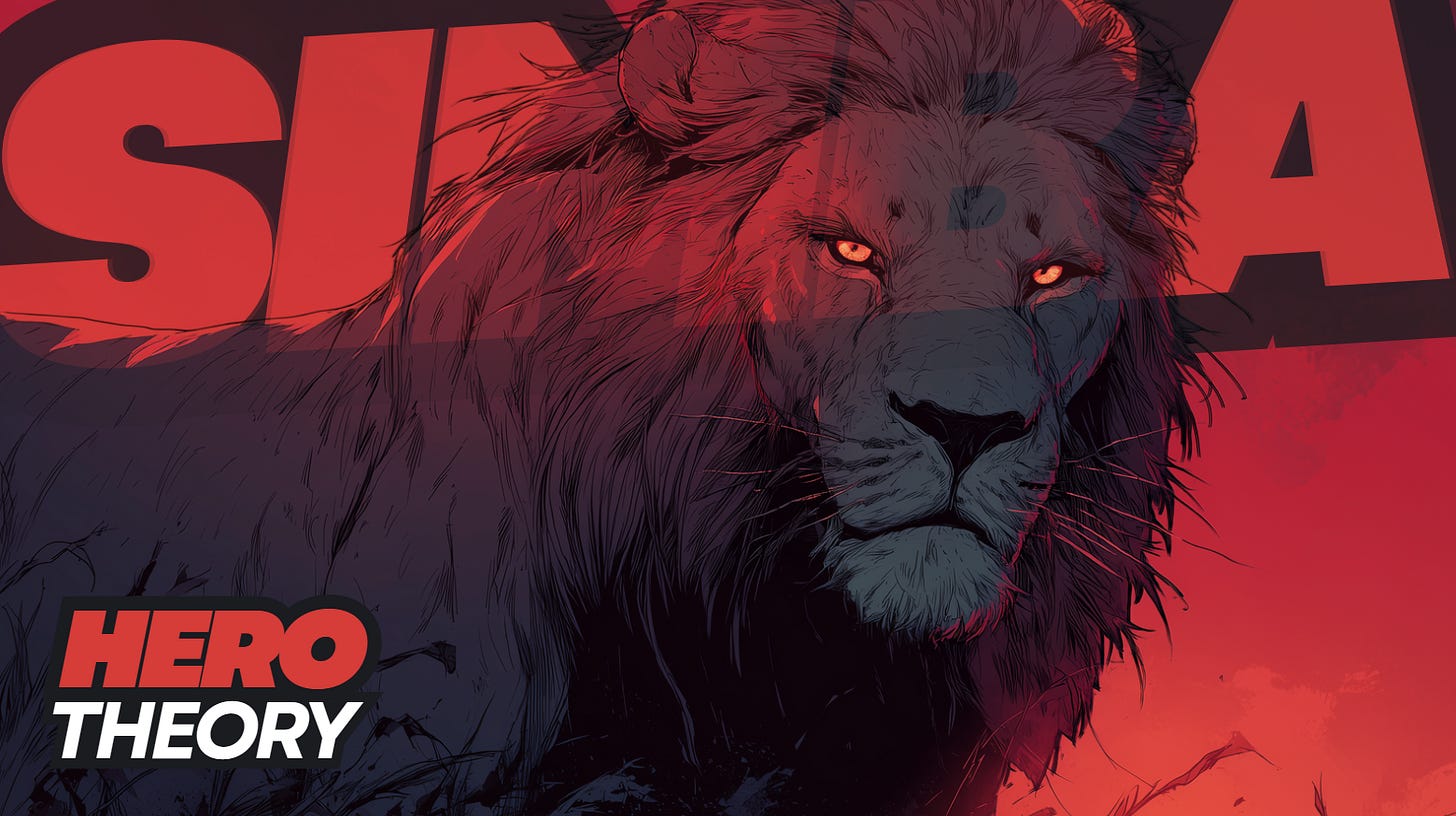Remember Who You Are: Simba’s turning point & the courage to return
What The Lioan King teaches us about facing the things we’d rather forget.
There’s this scene in The Lion King that every guy remembers—Simba standing in the dark, staring at his reflection, when suddenly his father’s voice rolls in from the heavens: “Remember who you are.”
It’s the kind of line that doesn’t just speak to a cartoon lion. It hits us, deep in the gut. At least it does me. And that’s why this story connects with men everywhere, generation after generation. It’s timeless.
Every man spends part of his life running from who he really is.
Simba had it all mapped out. Loving family, palace security, plan to succeed the throne. But then a moment of breaking the rules tripped up everything.
Scar twists the knife, convinces him that his father’s death is his fault, and Simba runs. That’s not a big surprise. It’s only natural that a child would flee into the wilderness when their whole world comes crashing down.
He goes off into exile, trades responsibility for a slice of hakuna matata. No worries, right? No burdens, no expectations, no responsibilities. Live up the good life.
But his story doesn’t end there. And for the hundreds of thousands of men looking around a culture that doesn’t want them, our story doesn’t end there either.
You can run from duty, you can run from your past, but you can’t outrun your identity. Wherever you go, there you are.
It takes a wise man, a Gandalf of the Pride Lands, to whack some sense into him. Rafiki drags Simba to the water’s edge, asks him to stop a minute and just pay attention.
As Catholics, we might drag ourselves before the Blessed Sacrament, or stop for a second to stare in the morning cup of coffee. Think for a minute.
Simba sees something terrifying and beautiful staring back—his father’s eyes looking through his own. That’s when Mufasa thunders down from the sky: “You are my son. Remember who you are.”
That’s the turning point. Not when Simba beats Scar. Not when he climbs Pride Rock. It’s that moment of remembering. Because you can’t lead others until you’ve owned who you are.
Most of us have some kind of exile story.
Maybe not lions and wildebeests, but shame, failure, regret—we’ve all got something that makes us want to disappear. Something that keeps your head down and your hands behind your back, thinking you’re not worthy.
So we check out. We chase distractions. We live like exiles from our own lives.
But Simba’s story reminds us: identity isn’t erased by failure. It might go into exile. It can’t stay in exile.
Your calling doesn’t get revoked just because you ran. Sometimes the most heroic thing you can do is stop running, turn around, and go home.
That takes courage. Because returning means facing the mess, owning the failure, stepping into responsibility again.
The Simba Challenge
Every day, carve out a minute—just one—where you look in the mirror and tell yourself something true about who you are.
Not who you fear you are. Not who others say you are.
But who you actually are, beneath the guilt and distraction.
Maybe it’s as simple as: I’m a father. I’m a son. I’m a man who won’t give up.
Whatever it is, speak it. Remember it. Because identity is the bedrock of courage. And what you pay attention to, what you desire to act on, that is where you find God already moving.
Then, when your Simba moment comes—when life calls you back to face what you left behind—you’ll need that practice. You’ll need those daily reminders.
And when you return, you won’t return empty.
Let’s stop living like runaways and start living like sons. Like the sons of kings. The son of a king lives to build a better world for his people, not on their backs. A man is defined by what he loves, because if he truly loves it, he will devote himself, and even sacrifice time, effort, money, maybe life, to keep it safe. To help it thrive.
Maybe the only thing standing between the man you are and the man you’re meant to be… is the courage to come home.



